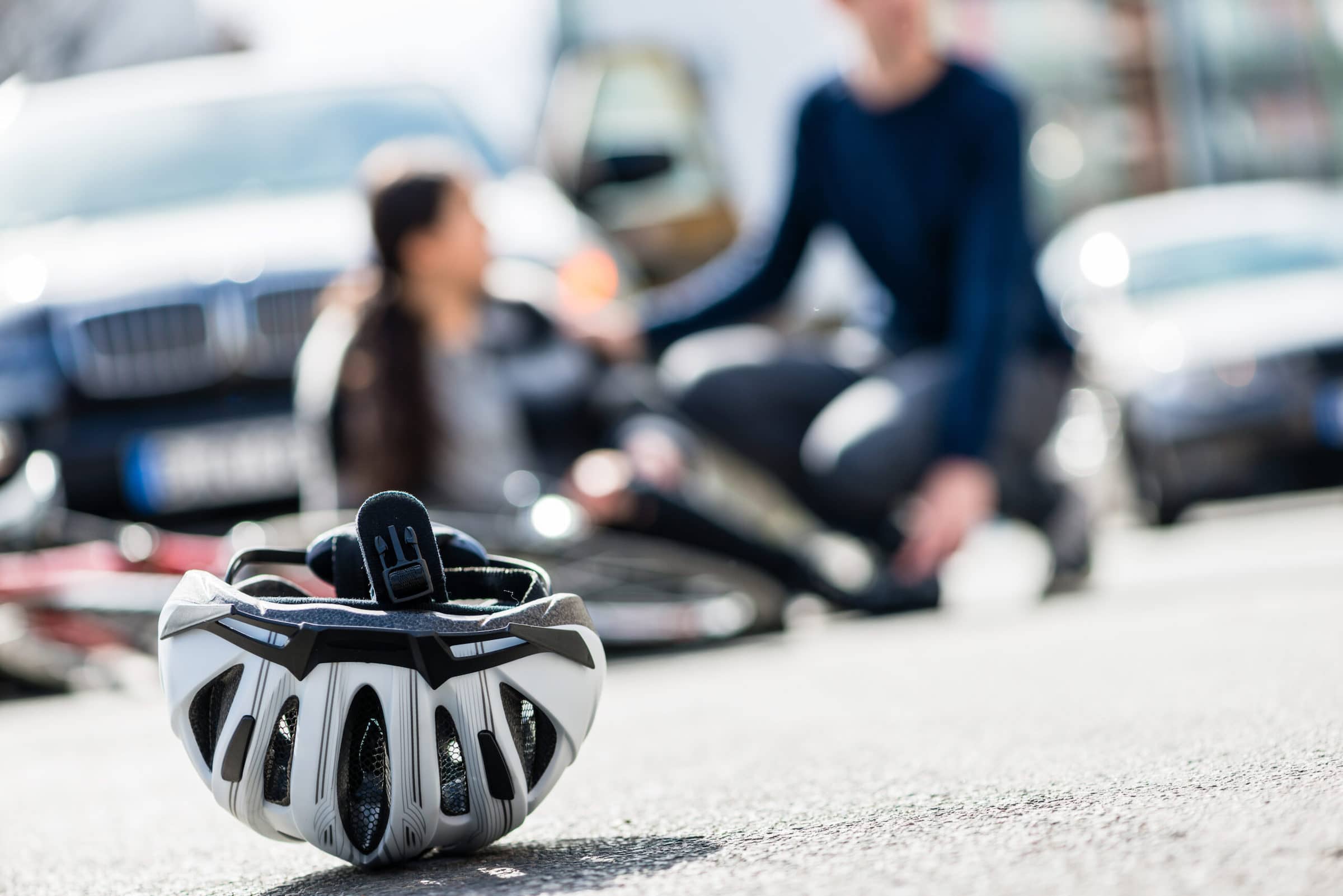If you have been involved in a cycling accident, whether you were knocked off your bike or managed to hit a pothole, you may be seeking advice on what to do next.
Our guide outlines the steps to take following a cycling accident.
Cycling accident statistics
Cyclists are incredibly vulnerable road users. They can be hard for drivers to see on the road and they aren’t protected the same way that car users are, making them more likely to sustain an injury.
In 2020, 141 pedal cyclists were killed in Great Britain, whilst 4,215 were reported to be seriously injured.
Look after yourself
First things first, if you have been involved in a cycling accident, it’s important to move yourself off the road and away from any cars, if you are able to do so.
Make sure you are sat or laid down as the shock of the accident may cause you to feel lightheaded and nauseous.
If in doubt, there are step-by-step first aid guides available with St. Johns Ambulance service, especially for cyclists.
Gather details
Try to write down as much detail as you can about the accident. If a third-party was involved and you sustained a serious injury, make sure to get any names and addresses of the defendant and any eye-witnesses. This is particularly important when applying for compensation or making a brain injury claim.
Note down other details from the accident too, including the model and colour of the car, registration details, road and weather conditions.
Image evidence
Nowadays, the photos on our phones have the time and location included, so it’s important to take lots of pictures at the scene of the accident. From pictures of the pothole and where it’s located on the road to any thick mud or debris that caused the accident.
Or, if a driver was involved, take a photo of their number plate if they’re not willing to cooperate with you.
Report the accident
If a motor vehicle was involved, make sure to report the accident to the police. Alternatively, if the accident was caused by a pothole, mud or other obstructions in the road, you should contact the area’s local council.
If there were any witnesses, whether they saw the accident or assisted you afterwards, ask if they are willing to give an account of what they saw.
Visit your GP/A&E
If you need immediate medical attention, make sure to go to A&E as soon as possible. Or, if you notice any injuries a few days following the accident, take a visit to your GP. It’s incredibly important to get checked over, as you may have suffered more damage than you anticipated.
